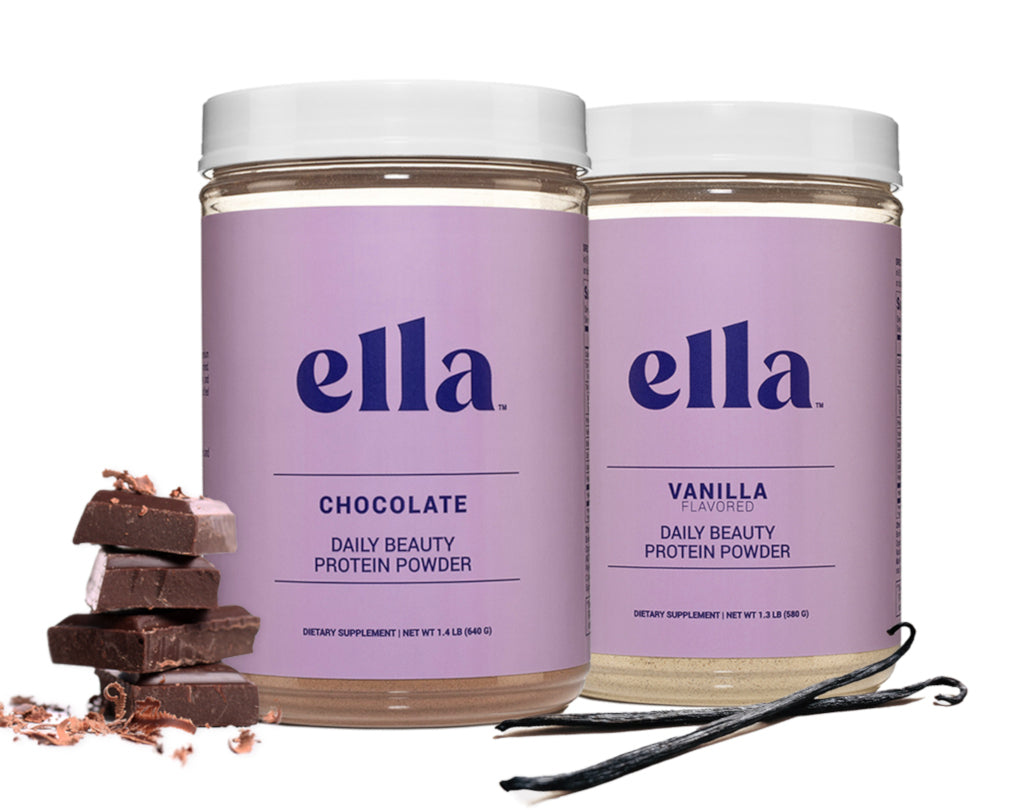Let's talk about one of the coolest molecules in your body - hyaluronic acid!
This naturally occurring substance is a real hero when it comes to keeping your skin, joints, and cartilage healthy and happy.
Hyaluronic Acid Holds Moisture
One of the ways hyaluronic acid works is by acting as a moisture magnet.
It loves to bind to water molecules, making it an awesome ingredient in skincare products. If you're looking to keep your skin hydrated and looking plump, this is definitely something to consider!
But that's not all - hyaluronic acid has some serious medical benefits too. It's been used to treat joint pain and inflammation, and can even be used in cosmetic procedures like dermal fillers to restore volume and smooth out wrinkles.
Unfortunately, as we get older, our bodies tend to produce less hyaluronic acid, which can lead to drier skin and stiff joints.
But don't worry - there are ways to supplement with hyaluronic acid and help keep things running smoothly.
What is Hyaluronic Acid?
Hyaluronic acid (HA) is a naturally occurring molecule that is present in our body.
It is a glycosaminoglycan, which is a long chain of sugars and amino acids that helps to maintain hydration and lubrication in our tissues.
In fact, it is one of the most hydrophilic (water-loving) molecules in nature, capable of holding up to 1000 times its weight in water!
HA is found in many parts of the body, including our skin, joints, and eyes. In the skin, it plays a critical role in maintaining hydration and supporting the structure of the skin.
It is a key component of the extracellular matrix, which is the network of molecules that supports and provides structure to our skin.
HA helps to keep the skin plump, firm, and smooth by binding to water molecules, which makes it an essential ingredient in many skincare products.
In the joints, HA acts as a lubricant, helping to reduce friction and wear on the joint surfaces.
It also helps to absorb shock and distribute pressure throughout the joint, which is important for maintaining joint health and function.

Are there Health Benefits of HA?
Hyaluronic acid (HA) is a real superhero in the world of health and beauty. It's like the Robin to your body's Batman, always there to lend a helping hand (or molecule).
For starters, HA is an absolute hydration hero. It loves water so much that it can hold up to 1000 times its weight in water!
This makes it an awesome ingredient in skincare products, as it helps to keep your skin plump, hydrated, and looking its best.
But the benefits of HA don't stop there. In fact, it's like the Swiss Army Knife of molecules, with a ton of different uses and benefits.
For example, it's been shown to help reduce joint pain and inflammation, making it a popular choice for athletes and anyone dealing with joint issues.
But wait, there's more!
HA can also help to improve eye health by providing lubrication and support to the eyes. It's even been shown to help speed up wound healing and reduce scarring, which is pretty darn cool if you ask me.
And let's not forget about the cosmetic benefits of HA.
When used in dermal fillers, it can help to restore volume and improve the appearance of fine lines and wrinkles, making you look like you've turned back the clock (in the best way possible, of course).
So there you have it - hyaluronic acid may be a mouthful to say, but it's definitely a molecule worth getting to know.
From skincare to joint health to wound healing, it's a true jack-of-all-trades that deserves a spot in your health and beauty arsenal.
How Does Hyaluronic Acid Help Hydrate Skin?

Here's how it works: HA is a large molecule that can hold a lot of water.
When applied to the skin, it forms a barrier that helps to lock in moisture and prevent it from evaporating.
This is especially important for people with dry or dehydrated skin, as it helps to replenish and maintain the skin's natural hydration levels.
In addition to its hydrating properties, HA also helps to improve the overall health and appearance of the skin.
It helps to support the structure of the skin by promoting the production of collagen and elastin, two proteins that are essential for maintaining skin elasticity and firmness.
This can help to reduce the appearance of fine lines and wrinkles, and give your skin a more youthful, radiant look.
Collagen vs Hyaluronic Acid: Any Reason to Take Both?
Collagen and hyaluronic acid (HA) are like two peas in a pod when it comes to skin health. They work together to keep your skin looking firm, plump, and radiant - like a juicy peach on a sunny day.
Collagen is a protein that gives your skin its structure and strength. It's like the scaffolding of a building, holding everything up and keeping it from sagging or collapsing. As we age, our bodies produce less collagen, which can lead to wrinkles, fine lines, and sagging skin.
Hyaluronic acid, on the other hand, is like the life of the party. It's a sugar molecule that attracts and holds onto water, helping to keep your skin hydrated and moisturized. It's like a big, fluffy cloud in the sky that's always ready to rain down on your skin and give it a refreshing boost.
So, do you need both collagen and HA in your life? The short answer is yes!
While collagen helps to give your skin structure and support, HA helps to keep it hydrated and plump. Together, they work in harmony to keep your skin looking its best.
Whether you're looking to reduce the appearance of wrinkles, boost your skin's hydration levels, or just give your skin a healthy glow, collagen, and HA are definitely two ingredients worth considering.
Just like two peas in a pod, they're better together than they are alone. That’s why they are both found in the Ella Beauty Protein powder.
What's the Best Way to Take Hyaluronic Acid?

One common way to take HA is through supplements, which come in various forms such as capsules, tablets, and liquid drops, or a protein powder like Ella.
HA supplements are often marketed as a way to promote joint health, improve skin hydration, and reduce the signs of aging.
When taking HA supplements, it's important to follow the recommended dosage on the product label and to consult with a healthcare professional if you have any underlying medical conditions or are taking other medications.
Another way to incorporate HA into your routine is through topical skincare products such as serums, creams, and masks. These products are applied directly to the skin and can help to hydrate, plump, and smooth the skin.
When using HA skincare products, it's important to look for products with a high concentration of HA and to apply them consistently as part of your daily skincare routine.
Are there Side Effects?
Hyaluronic acid (HA) is generally considered safe and well-tolerated when used appropriately. However, like any supplement or skincare product, there is always the potential for side effects.
The most common side effects of HA include mild irritation, redness, and itching at the site of application when using topical skincare products.
These side effects are usually mild and temporary and can be minimized by using products with a lower concentration of HA or by gradually increasing the frequency of use.










